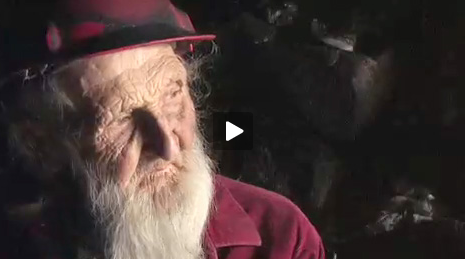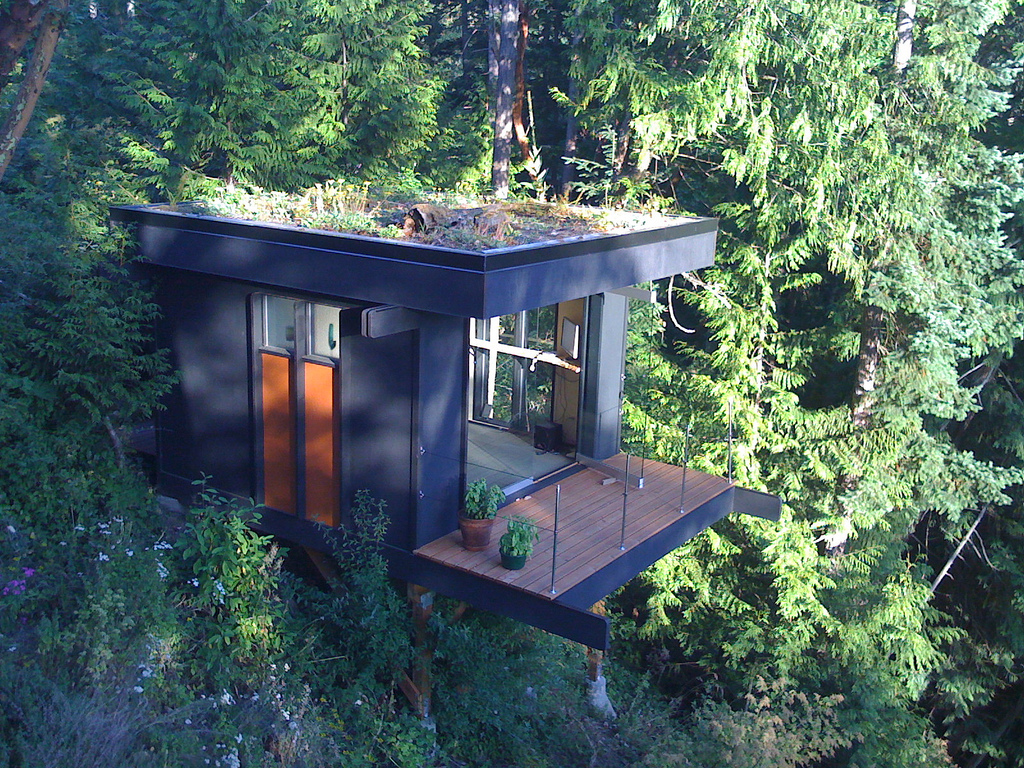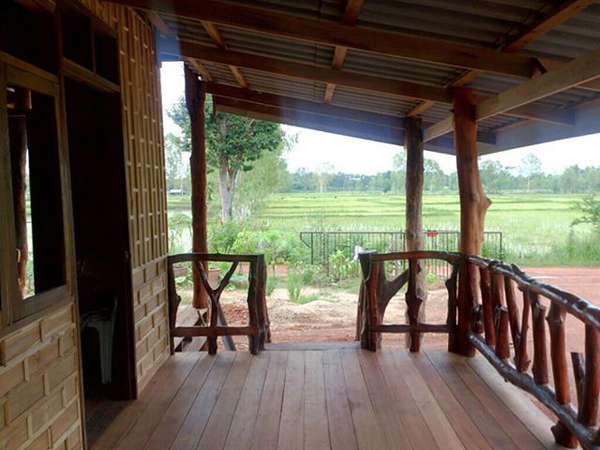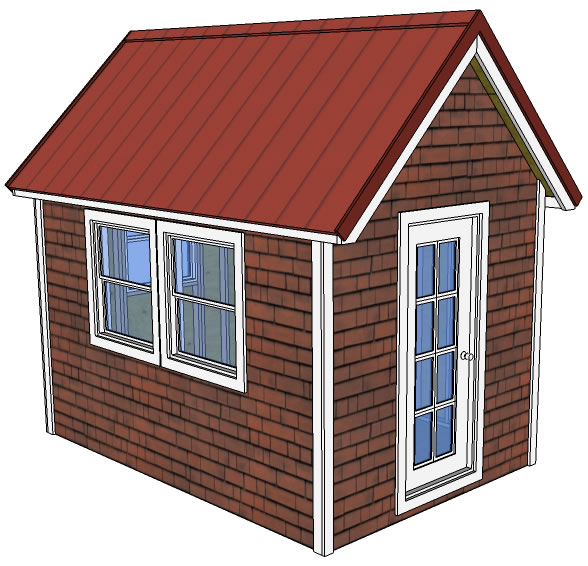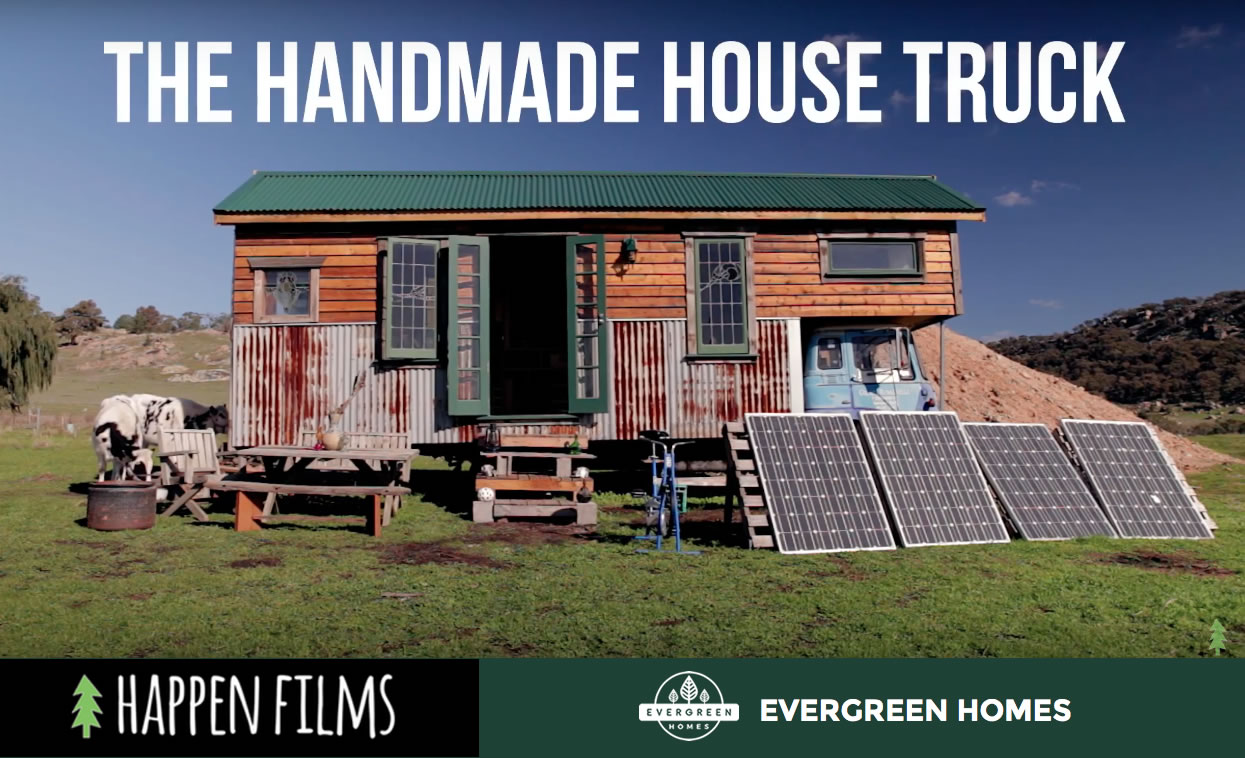What States Allow Tiny Houses? (House Codes And Regulations)
With housing prices quickly on the rise, many Americans are looking to build their own affordable homes. One such option is a tiny house, a small but cozy option that you can call home.
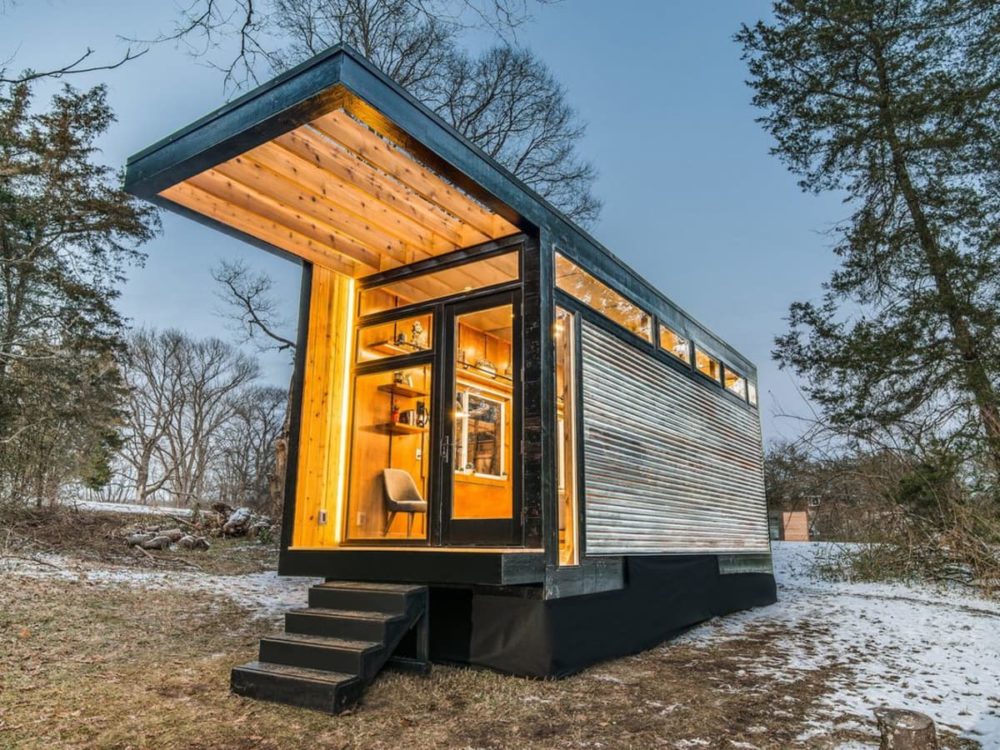
But what states allow tiny houses in the US, and what regulations should you keep in mind?
You can find all the answers below!
Contents
Are Tiny Homes Legal In The US?
Tiny homes are legal in all states in the US, however, this doesn’t mean that it is recommended to build in just any state. Some US states feature extremely strict building regulations, especially when it comes to tiny structures.
If you are looking to build a tiny house, then always check your chosen state’s building codes. This will ensure that you don’t find yourself in a heap of legal troubles!
Tiny House Building Codes And Zoning Regulations In The US
The exact building codes and zoning laws regarding tiny homes will largely differ from state to state. This is why it’s important to ensure you are checking your chosen state’s tiny house living regulations.
On top of this, the exact regulations can also differ depending on your chosen town, city, and even county!
Tiny House Size Regulations And Requirements
Depending on the state, there are a few tiny house size regulations and requirements you will want to keep in mind when planning your build.
Firstly, any ceiling in a common area must be at least 6 ft 8, whereas any ceilings found in bathroom areas must be at least 6 ft 4.
Where Are Tiny Homes Legal In The US?
Thankfully, the vast majority of states within the US have lenient tiny house laws. This is excellent news if you are looking to build yourself a tiny house!
Here are our picks for the top 10 most popular places to build or buy a tiny home in the US.
1. California
When it comes to tiny house communities, few states in the US are as tiny house friendly as California. In fact, the city of Fresno was the first city in the US to class tiny houses on wheels as secondary living units!
The vast majority of cities in California will allow the development of tiny homes, so be sure to consider building your own tiny house here in this beautiful state.
2. Texas
The tiny housing regulations in Texas can be a little confusing at first, as they differ largely from county to county. However, areas such as Austin and Spur are some of the best locations for tiny homes in America.
Spur was the very first town in America to remove a minimum size regulation from tiny homes, which is an incredible thing for the tiny house movement.
Austin is also a fantastic choice for tiny living as you may build a tiny house of any size as long as it is on a foundation.
3. Arizona
Arizona has been quick to welcome the tiny house movement in their state – this is especially true in Pima County.
Any tiny home living unit built on foundations is covered by the same zoning laws as detached single-family dwellings. This makes Pima County one of the greatest locales to start a tiny home community.
4. North Carolina
The exact laws and regulations regarding tiny houses in North Carolina are very county dependent. Perhaps one of the most tiny house-friendly areas in North Carolina is Wilmington.
The following regulations only apply to tiny homes built in Wilmington:
- A tiny home must be at least 150sq. ft for a single occupant.
- For each additional occupant, you must add 100sq. ft to your tiny house build.
5. Florida
Florida is one of the best states in the US for tiny houses. It offers a range of tiny living hotels and RV parks designed to offer Florida residents a way to set up a tiny house community!
There are still a few regulations to keep in mind, however, such as any tiny houses on wheels will need to be registered in the Florida DMV. And always remember that tiny house builders should always check what states allow tiny houses before starting their build!
6. Maine
Maine is quickly becoming one of the best states for tiny house communities thanks to its lenient state-wide regulations. Any dwelling built in Maine that is under 400sq. ft. is classed as a tiny home.
When building a tiny house in Maine, you may add the following:
- Sleeping lofts with ladder access
- Skylights within these lofts
This can add a whole new layer to your tiny living home!
7. Washington
The regulations regarding tiny homes in Washington state are completely dependent on whether or not your home is built on a foundation. Any tiny home built in Washington should be built on a foundation to avoid the strictest regulations!
8. Oregon
If you are looking to reside in a tiny house on wheels then Oregon is one of the best states to do so. You will need to apply for a special permit to be able to move your wheeled home. But once you’ve received this, Oregon can be an excellent state for tiny house communities!
Perhaps the surest sign that Oregon is looking to welcome more tiny house communities is its Tiny House Hotel. Hopefully, this impressive landmark is a sign of things to come!
9. Minnesota
Unlike Maine, the tiny house regulations in Minnesota are very county dependent. However, Accessory Dwelling Units are beholden to shared state-wide regulations.
Tiny house builders looking to build tiny homes in Minnesota must be built on a foundation. Tiny homes are covered by the Minnesota State Building Codes, so be sure to check them out before you start your tiny house community.
10. Hawaii
Although the rules regarding tiny homes in Hawaii can still be fairly strict, this is changing thanks to its ‘Tiny House Initiative’. Hawaii is hoping to become a state where tiny house communities can thrive in the near future.
However, keep in mind that any tiny houses on wheels in Hawaii must be registered with the DMV as travel trailers!
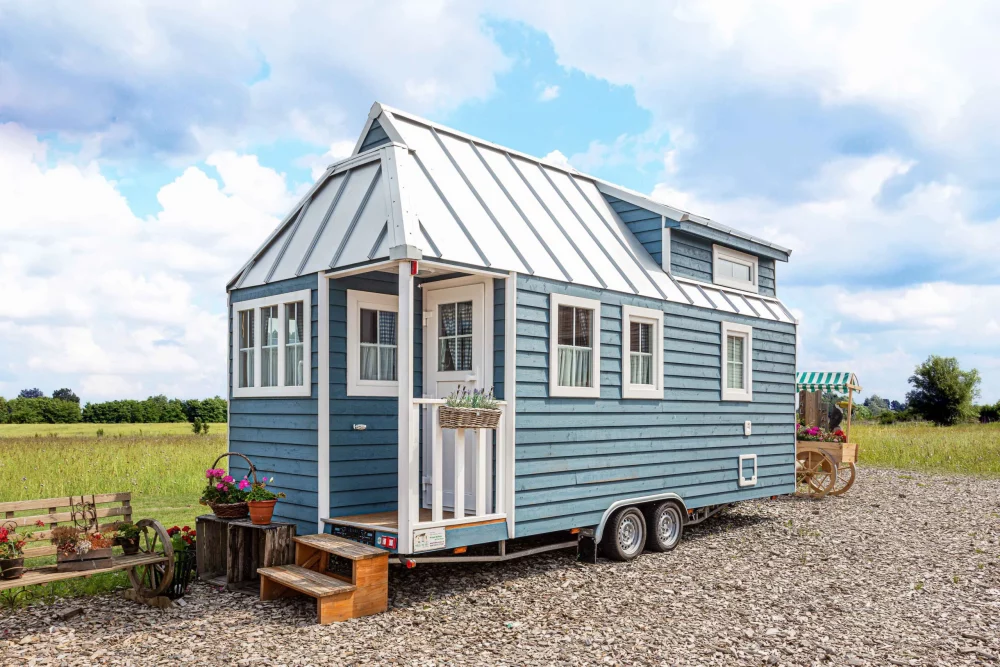
States Where Tiny Houses Are Illegal?
Although there are no states in the US where tiny houses are illegal, there are a few that have extremely strict regulations. This can negatively impact your tiny home build. Below you can find some of the strictest states in the US when it comes to tiny homes.
New York
Although New York is a fairly progressive state, it sadly features some of the strictest regulations in the US when it comes to building tiny homes.
In New York, it’s not possible to register a wheeled tiny home as your primary living unit. On top of this, it is also illegal to build temporary buildings in New York, and tiny houses are classed as such.
West Virginia
The main regulations in each town and city within West Virginia do differ, but there are a few standard regulations for tiny houses.
The main limiting factor regarding accessory dwelling units in West Virginia is that they cannot exceed 1700sq. ft. Be sure to keep this in mind if you are looking to build a tiny home in West Virginia.
North Dakota
North Dakota has some of the strictest tiny house regulations in the US, which can be a pain if you are looking to build a tiny house.
One example of a strict county within North Dakota is Burleigh County. An example of these regulations is as follows:
- Tiny homes must be at least 965 sq. ft
- Any tiny house must have access to gas, electricity, and water
- No Accessory Dwelling Units are allowed
- Any wheeled property must be kept on a static foundation
Alaska
Depending on where you are looking to reside in Alaska, your tiny house may be covered by strict regulations. In fact, the city of Anchorage does not officially support tiny home communities at all!
The best choice for a tiny house in Alaska is a wheeled home. However, these are covered by RV R-5 zoning regulations – which can also be pretty strict!
Wisconsin
As with a majority of US states, the exact building codes regarding tiny homes will differ from county to county. Sadly, very few areas in Wisconsin are welcoming to the tiny house movement.
Dad County has a limit on the size of any accessory units, the maximum size being 800sq. ft.
Madison is also fairly strict, especially when it comes to wheeled homes. Any tiny house on wheels that is larger than 150sq. ft is classed as a portable shelter. This means you may struggle to primarily reside in your wheeled home.
How Do You Know If Tiny Houses Are Allowed In Your State?
The best way to check if tiny houses are allowed in any given state is to check your chosen state’s laws. You can also get in touch with your local council to check what their rules and regulations are regarding tiny house living.
Keep in mind that the regulations will depend on your chosen tiny house structure. For example, wheeled homes will be covered by different regulations than your typical static unit, so always do your research before building!

